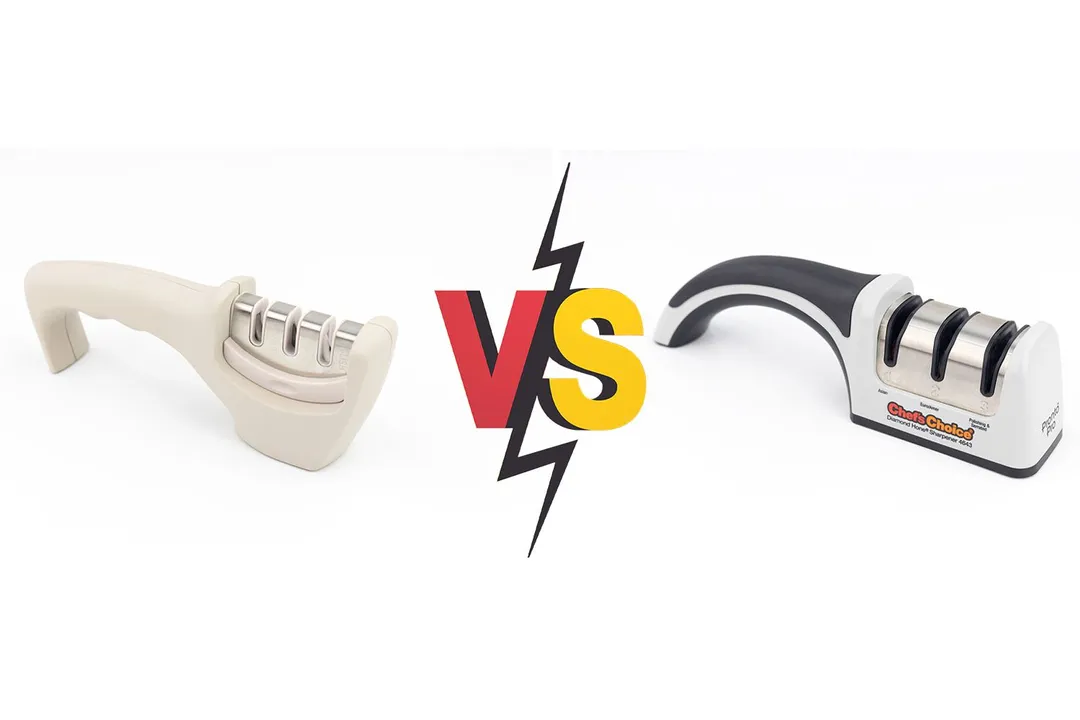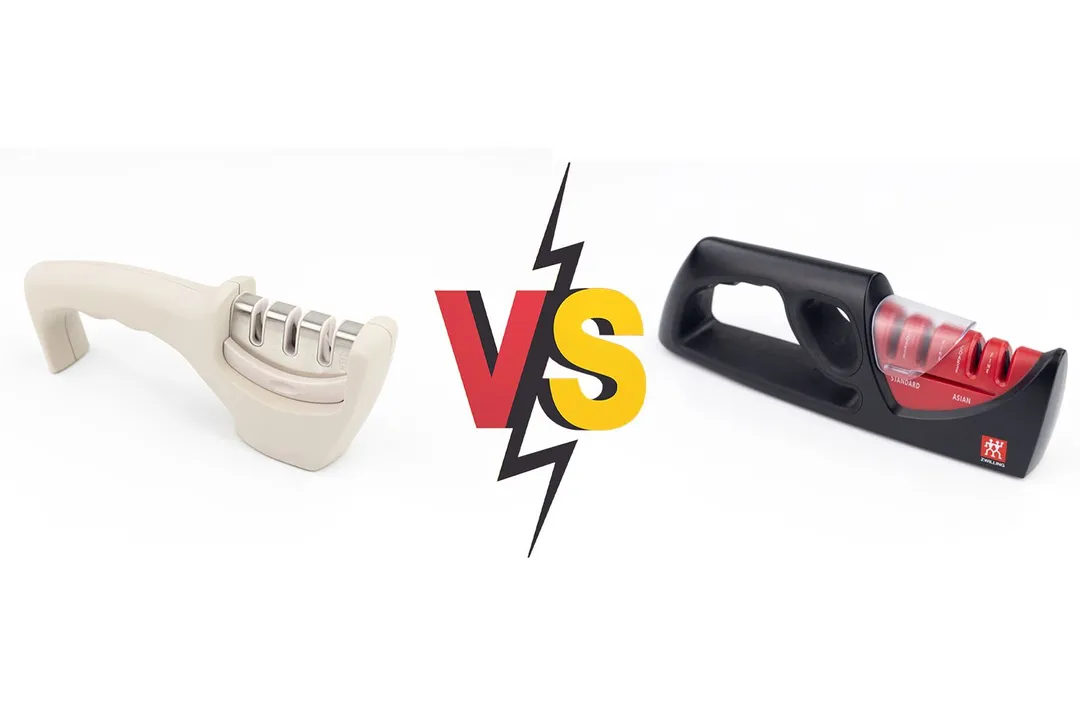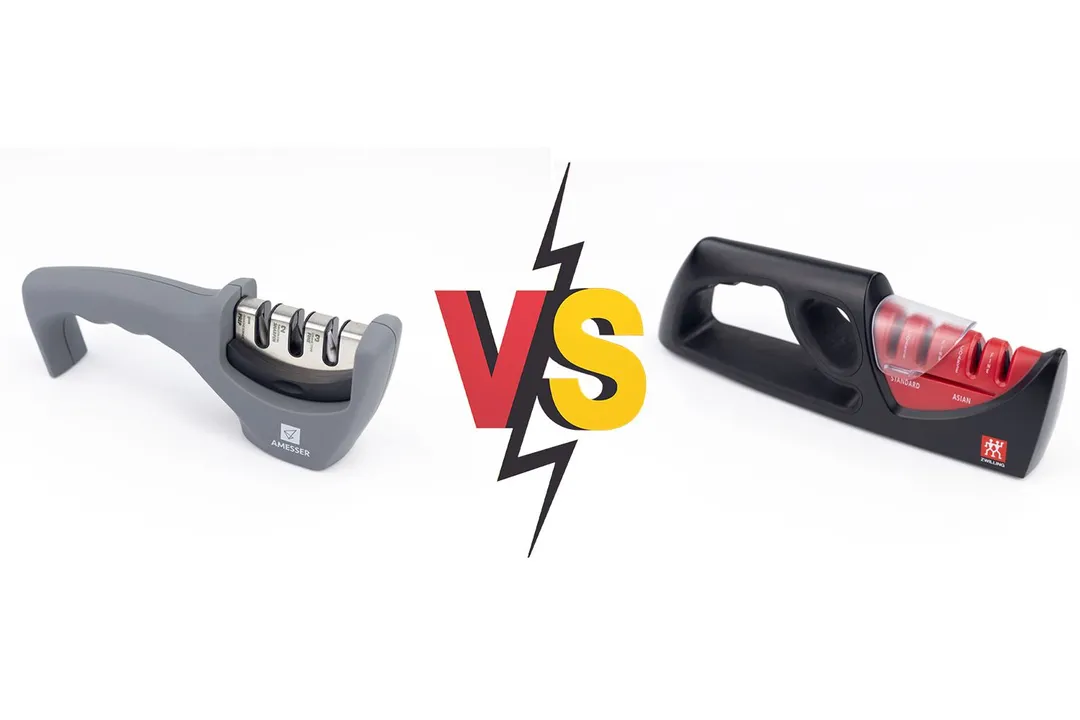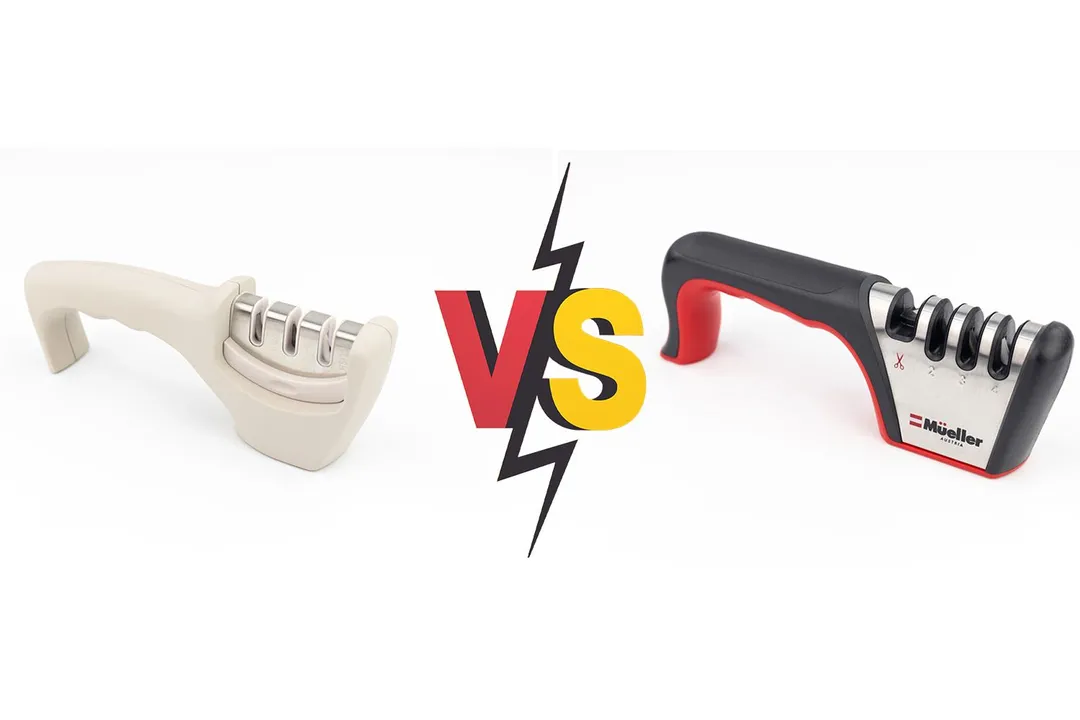Our recommendations are made independently through Research & Testing. We may receive commissions from purchases made via our links.
Gorilla Grip vs Amesser A-65 Manual Sharpener Side-by-Side Comparison
The Gorilla Grip and the Amesser A-65 pull-through sharpener have more differences than their looks suggest. Check out our comparison.
Gorilla Grip
Tested Using Methodology v1.1Amesser A-65
Tested Using Methodology v1.1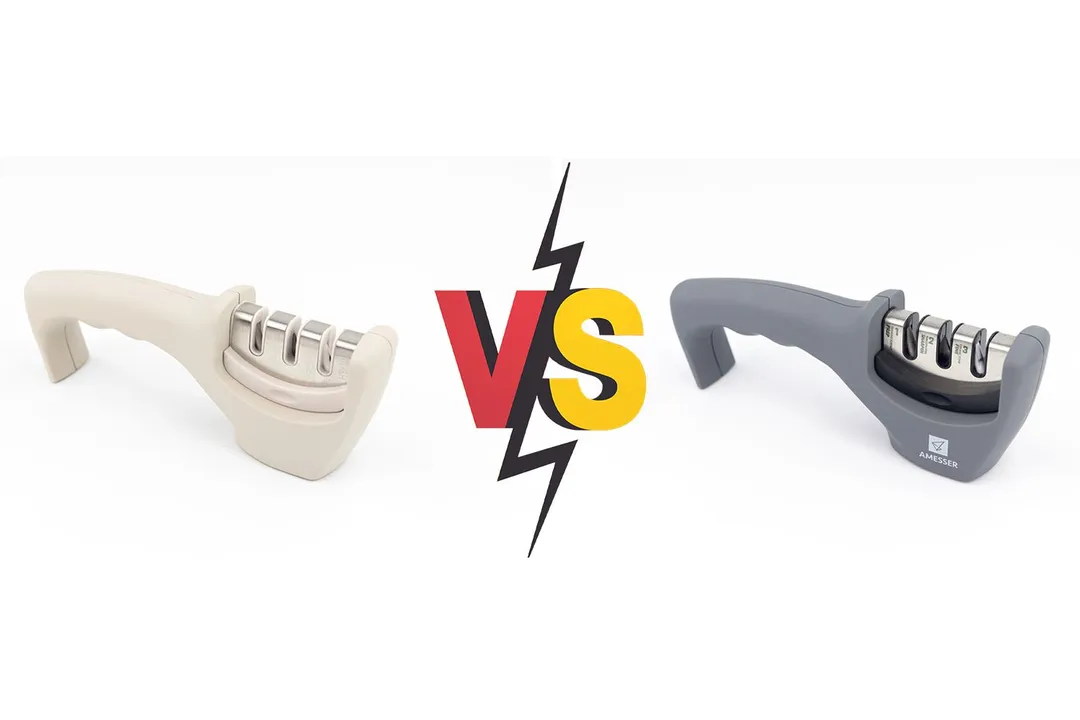
Overall Verdict
The Gorilla Grip and the Amesser A-65 look almost identical and achieved the same overall score of 7.6. Interestingly, they performed rather differently in our tests.
The Gorilla Grip seems to follow a more aggressive approach to sharpening: It peeled a lot of material away from the knife to create a rough, but sharp edge. The Amesser produced a smoother edge; on the other hand, it took its sweet time about it, hence the lower overall performance rating.
Despite the palpable similarities in design, the Gorilla Grip’s uneven base pad caused it to lose its balance more often, which made sharpening with it more challenging. The Amesser has a better fit and finish, and enjoys higher scores in both build quality and ease of use.
In the end, your choice between the two may largely come down to personal preference. You may also want to check out the Kitchellence, which has the exact same design but got a higher rating. For a (better) change, however, look into the Cubikook or the PriorityChef sharpener.
Pros & Cons
- Substantial sharpening rods
- Solid construction
- Intuitive order of sharpening slots
- Ergonomic grip
- Affordable
- Instinctive and easy to use
- Well-built with a solid design
- Grippy and comfortable handle
- Safety glove included
- Tapered and bumpy base
- Poorly fitted rubber feet
- Tapered base
- High center of gravity
Key Specs
Where to Buy
*You help support HealthyKitchen101's product testing and reviews by purchasing from our retail partners.
Analysis and Test Results
Performance
Sharpening Time to Cut a Lemon
Material Retention
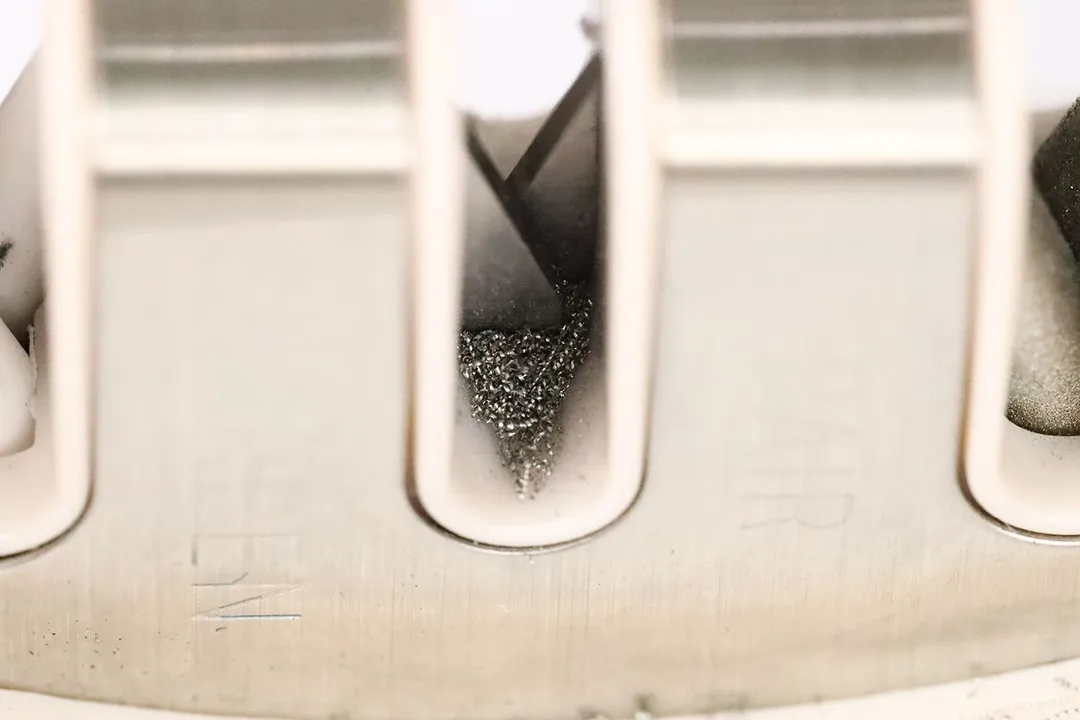
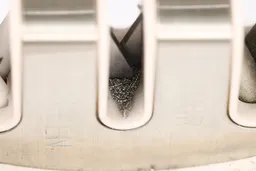
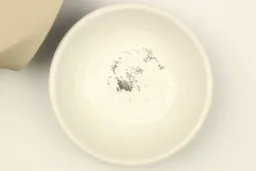
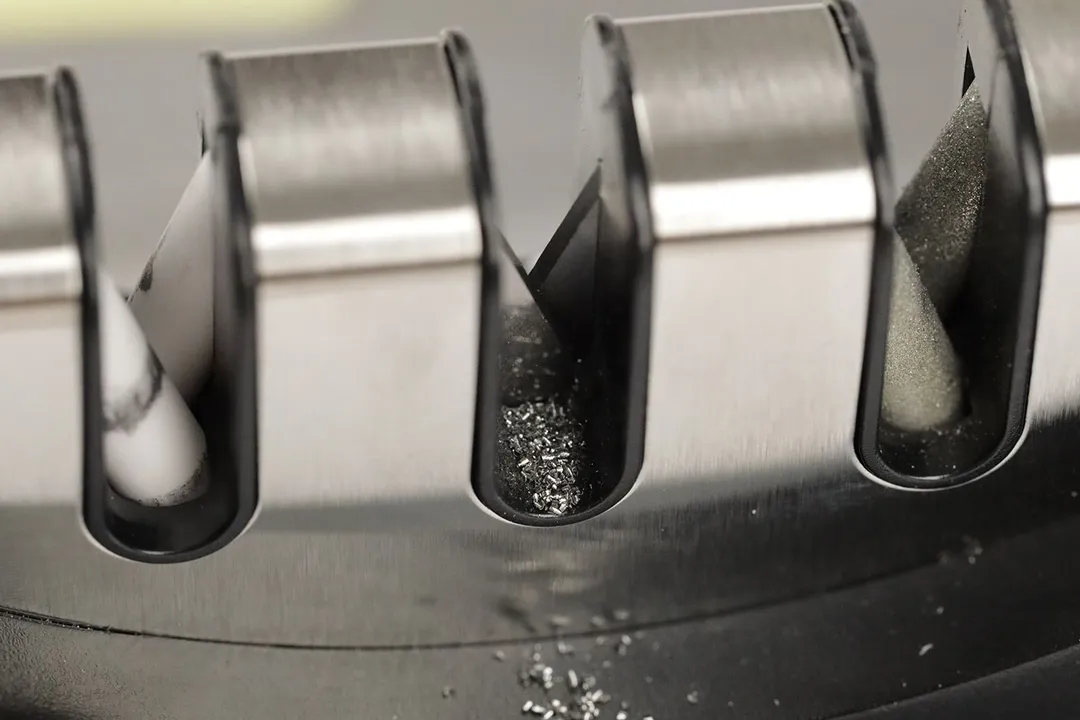

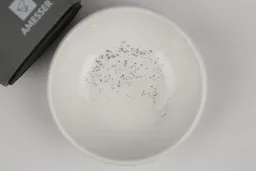
Maximum Sharpness Achieved
Edge Smoothness
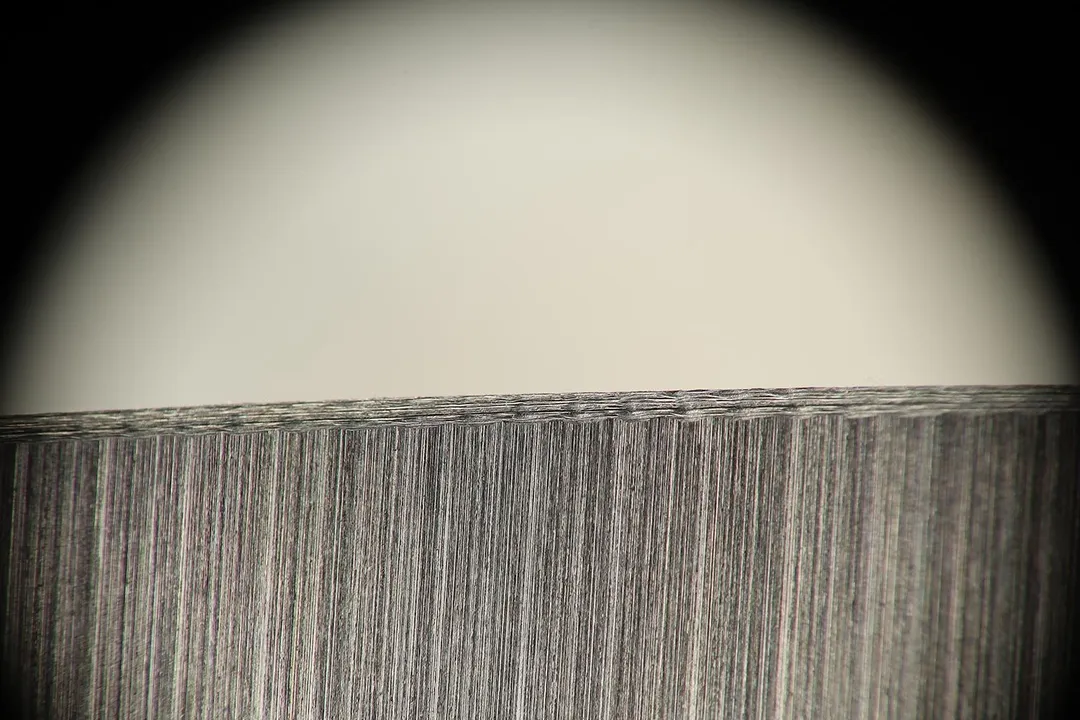

Design
In the Box
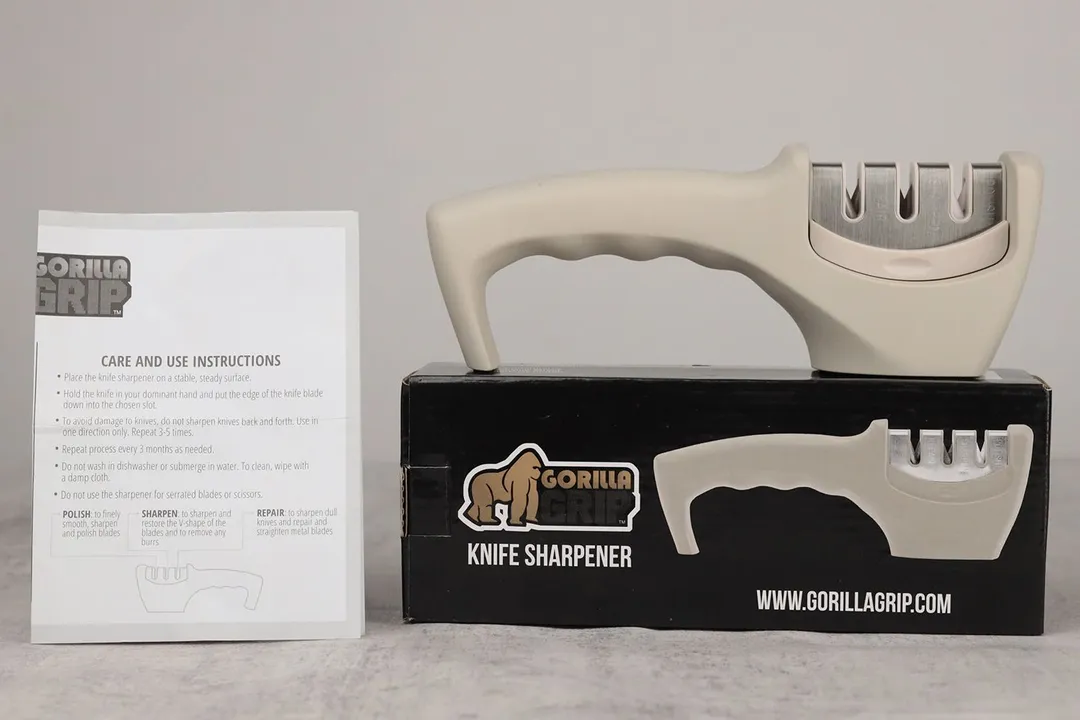

Dimensions

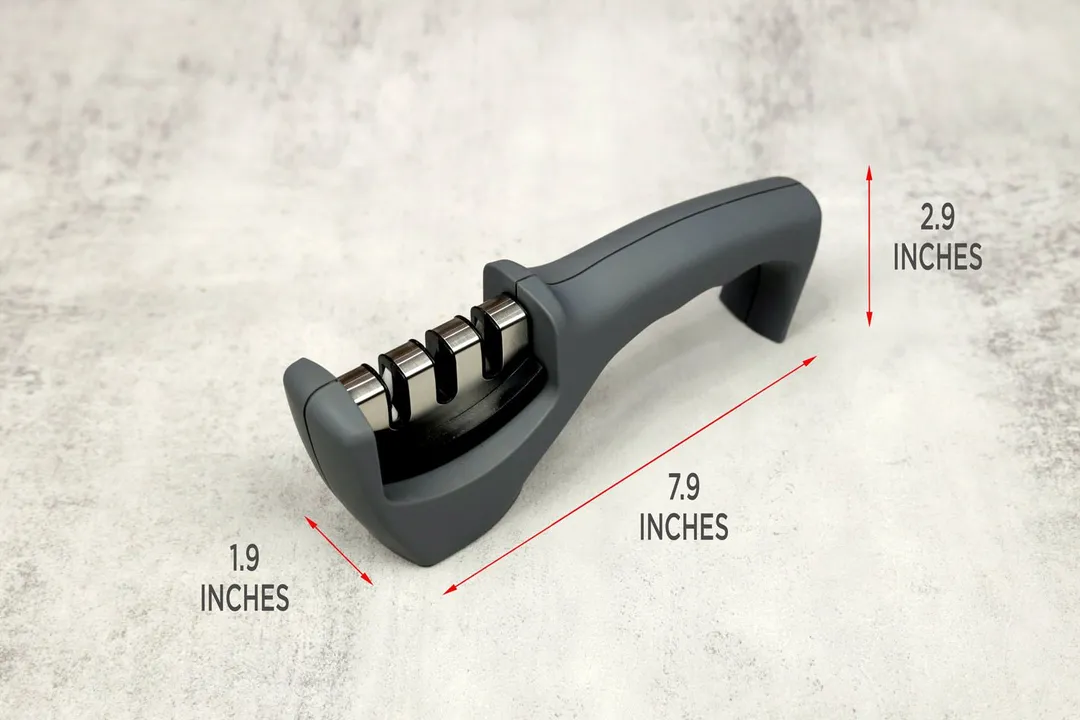
Build Quality
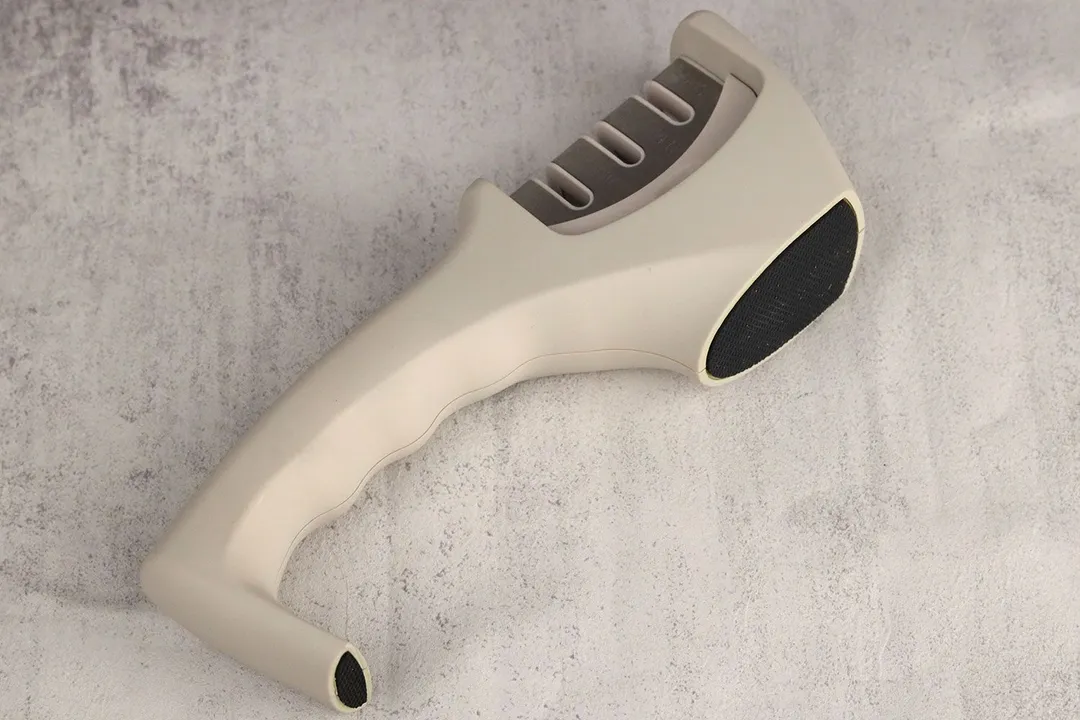
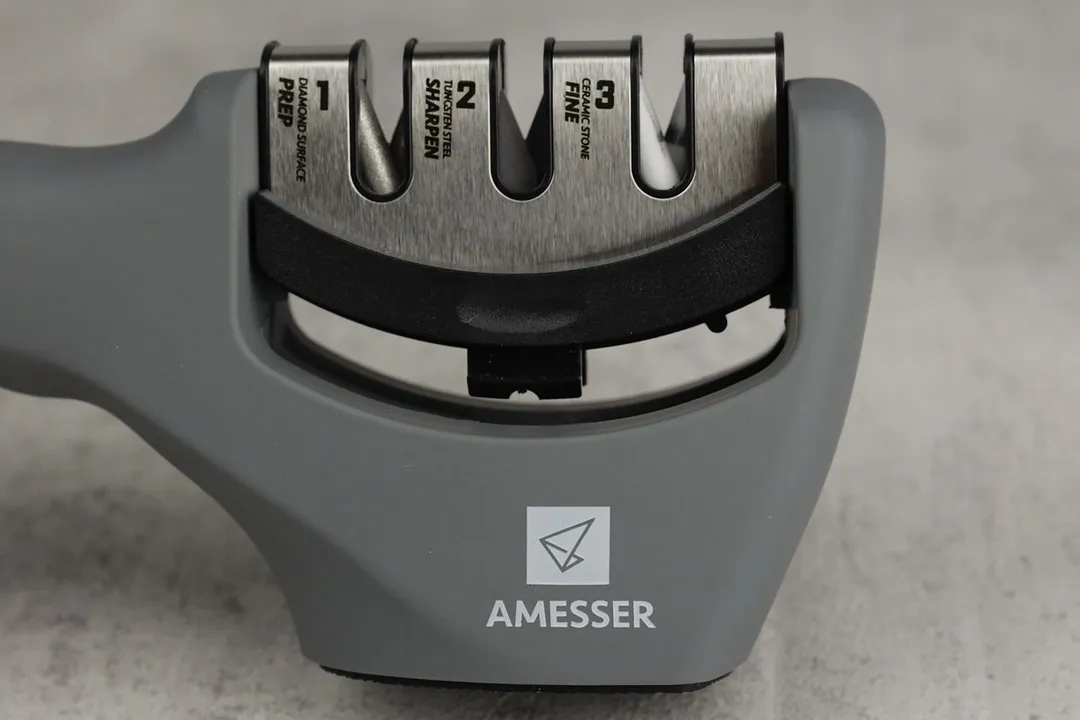
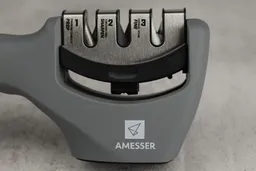
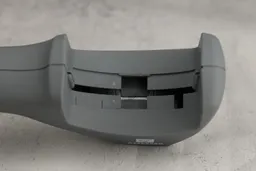
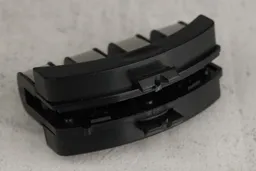
Working Section

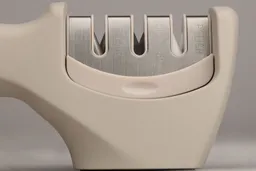
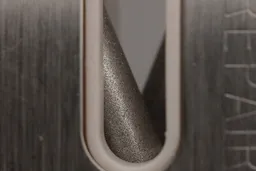
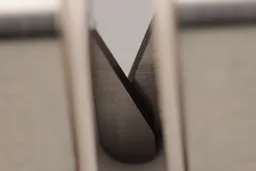
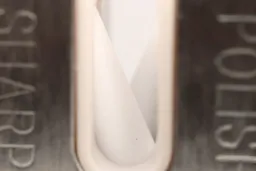
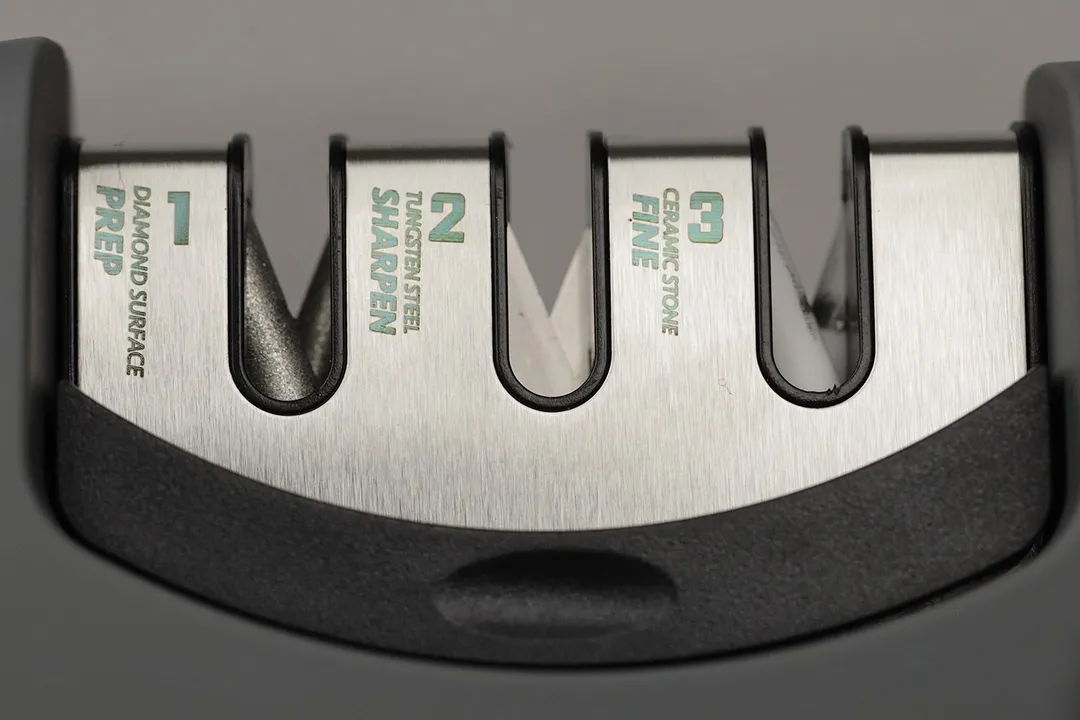
Base
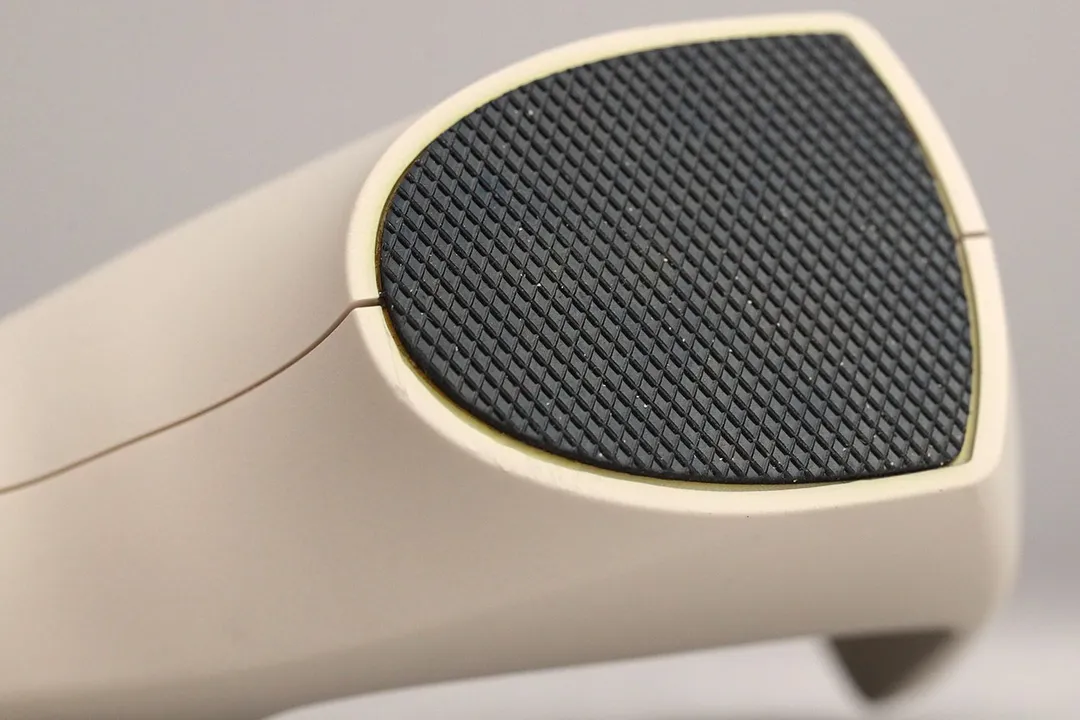
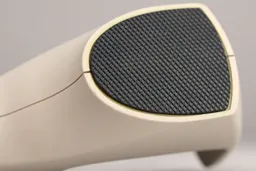

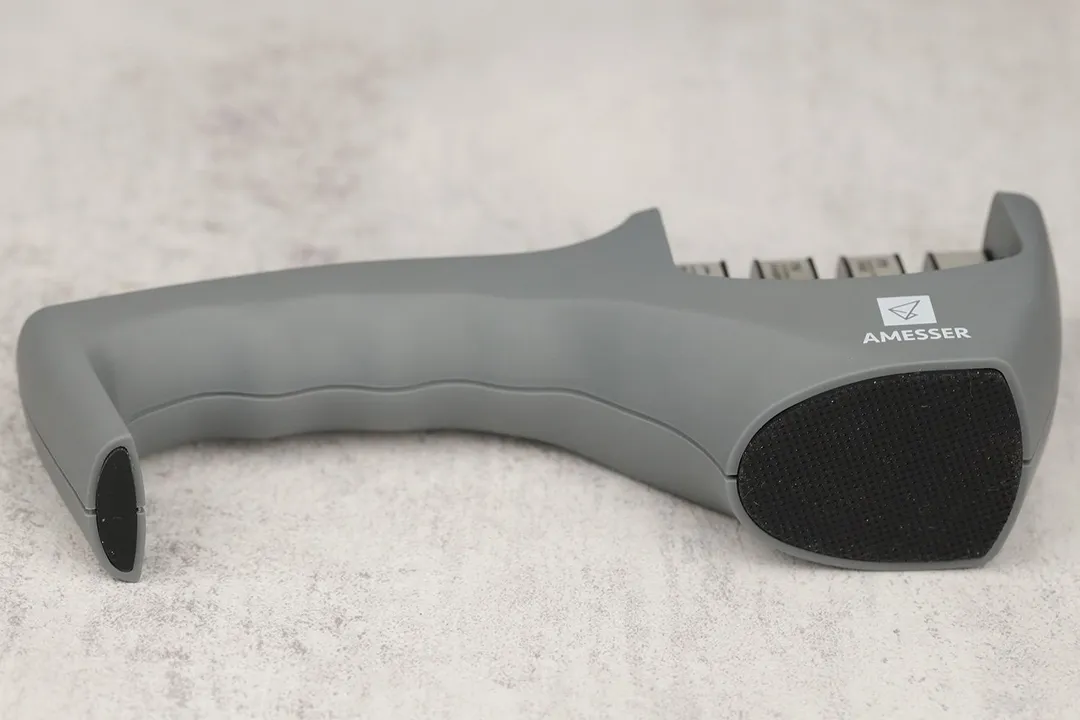
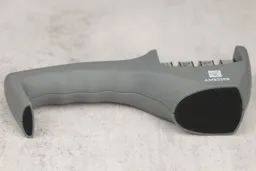
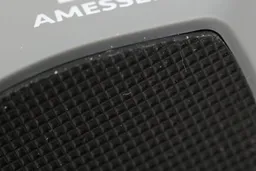
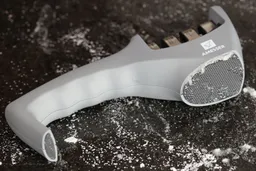
Grip
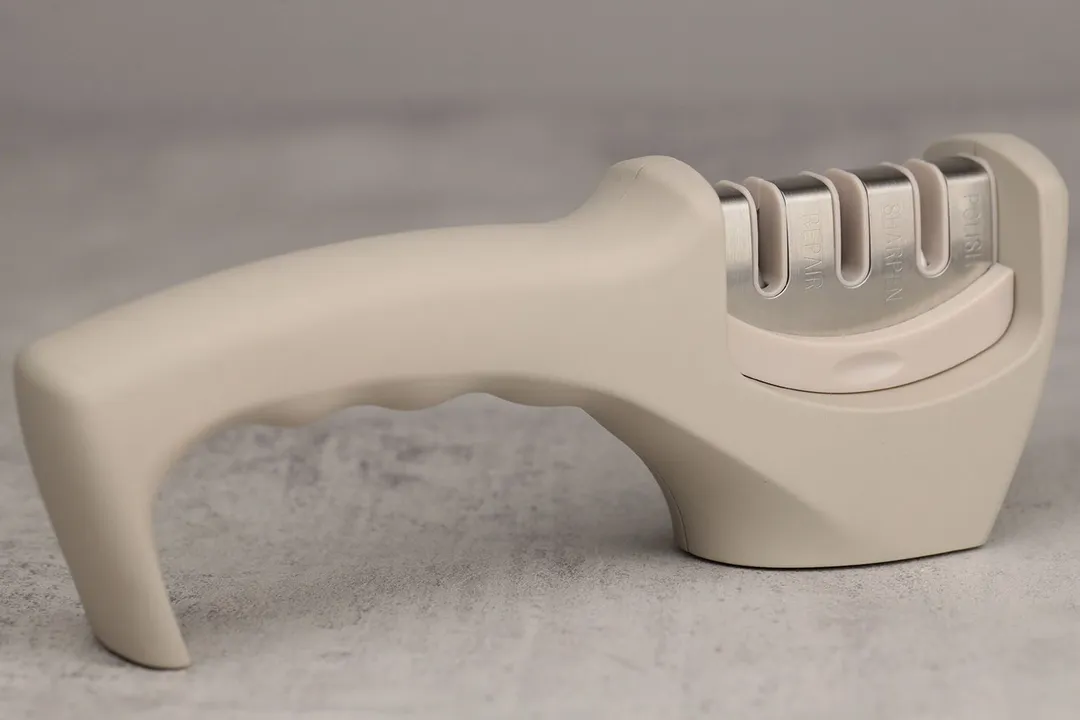

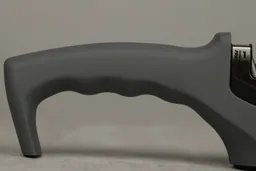

Usability
Slot Arrangement

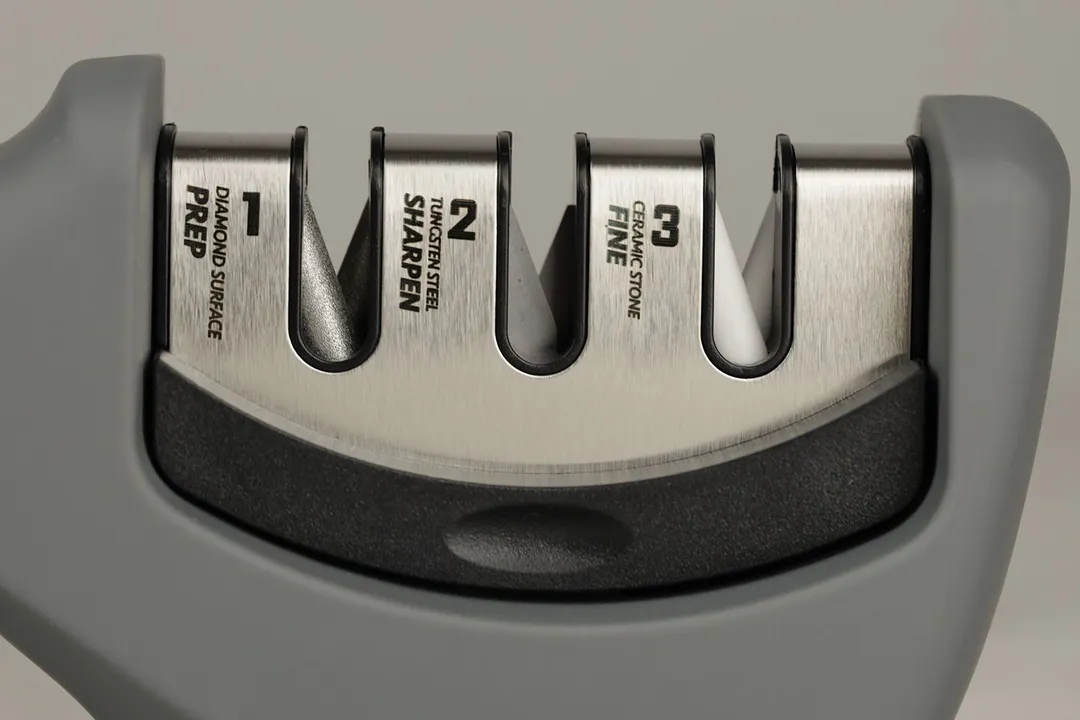
Insertion
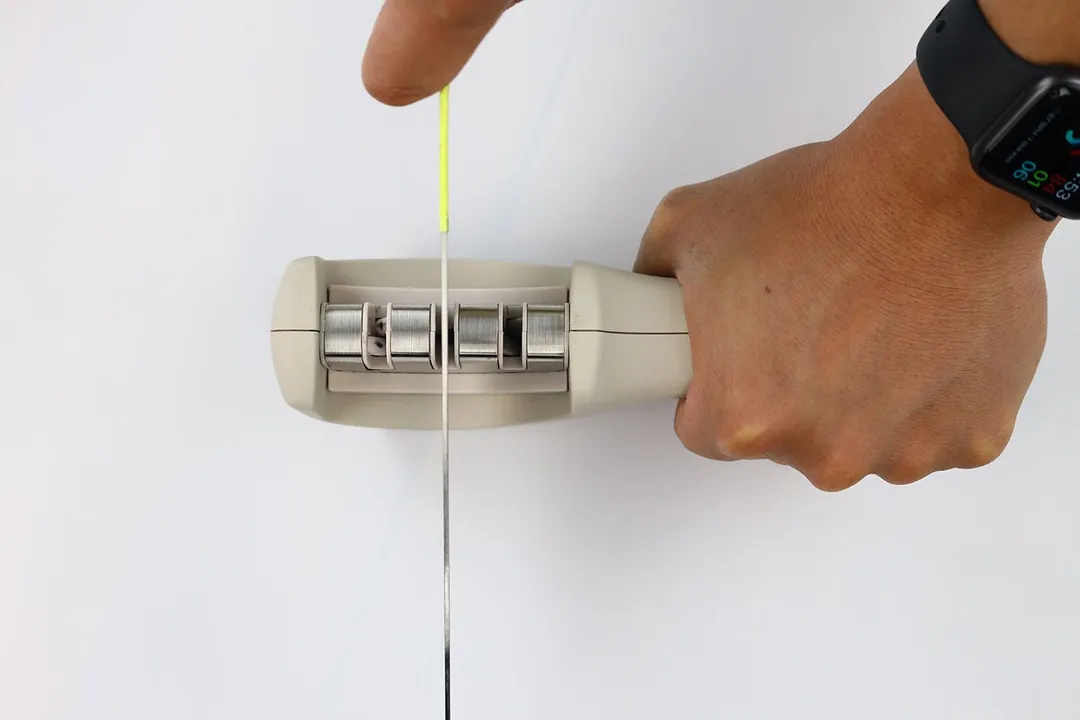
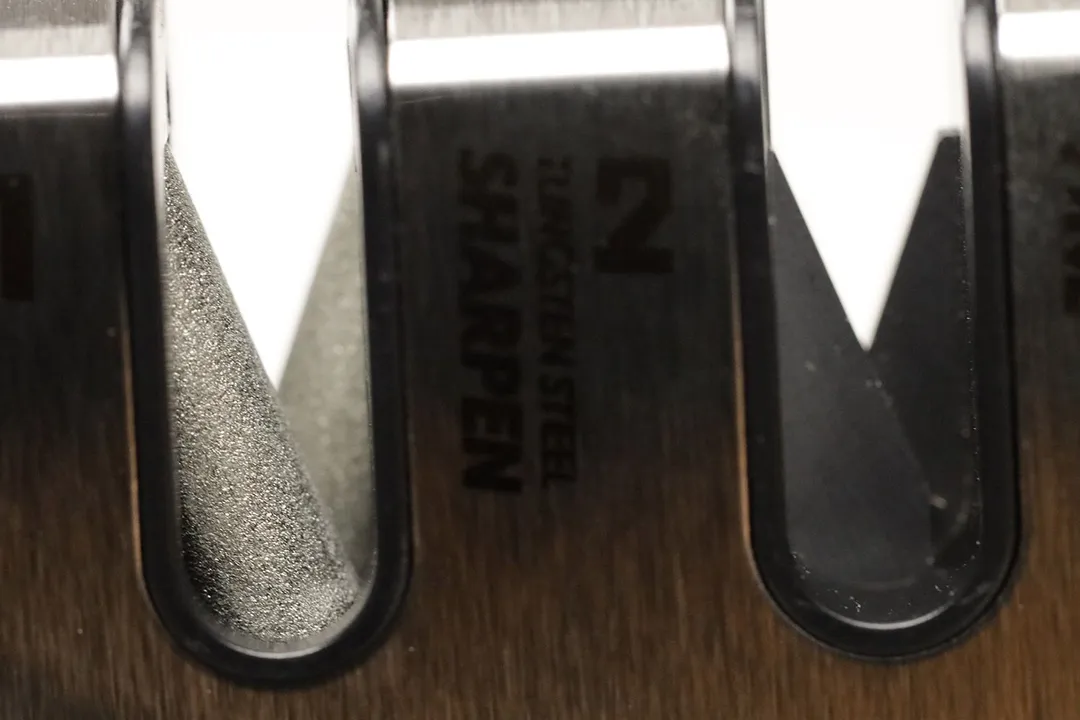
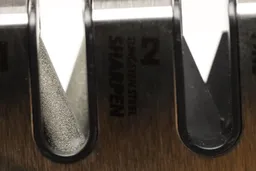
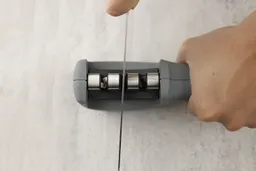
Pulling Through
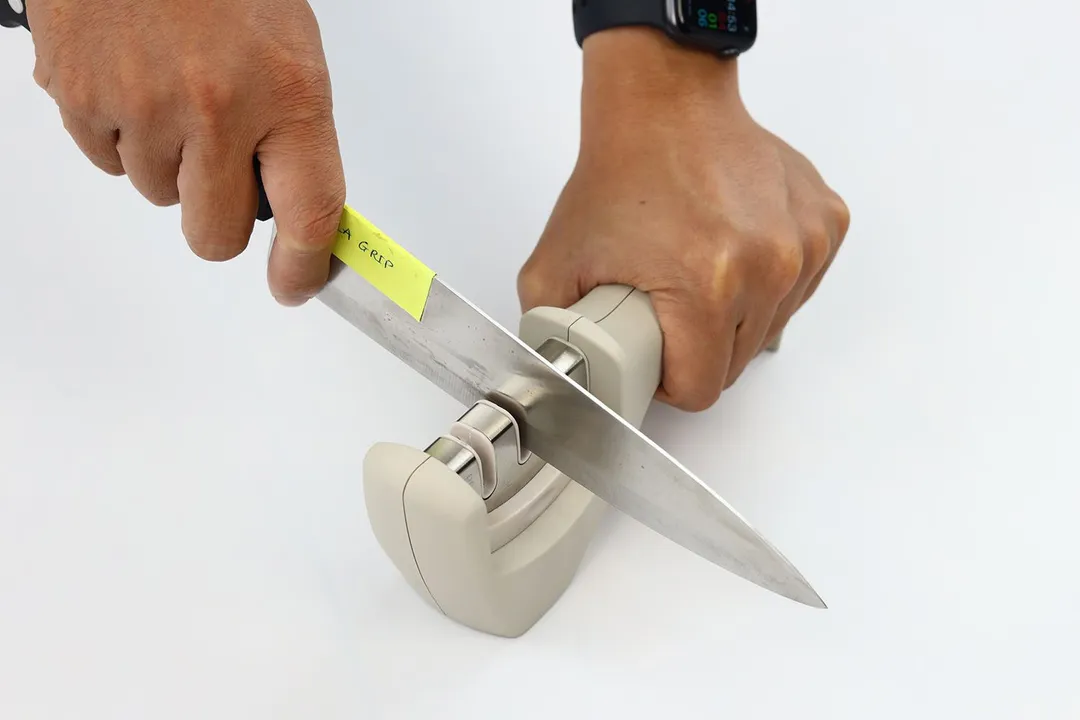
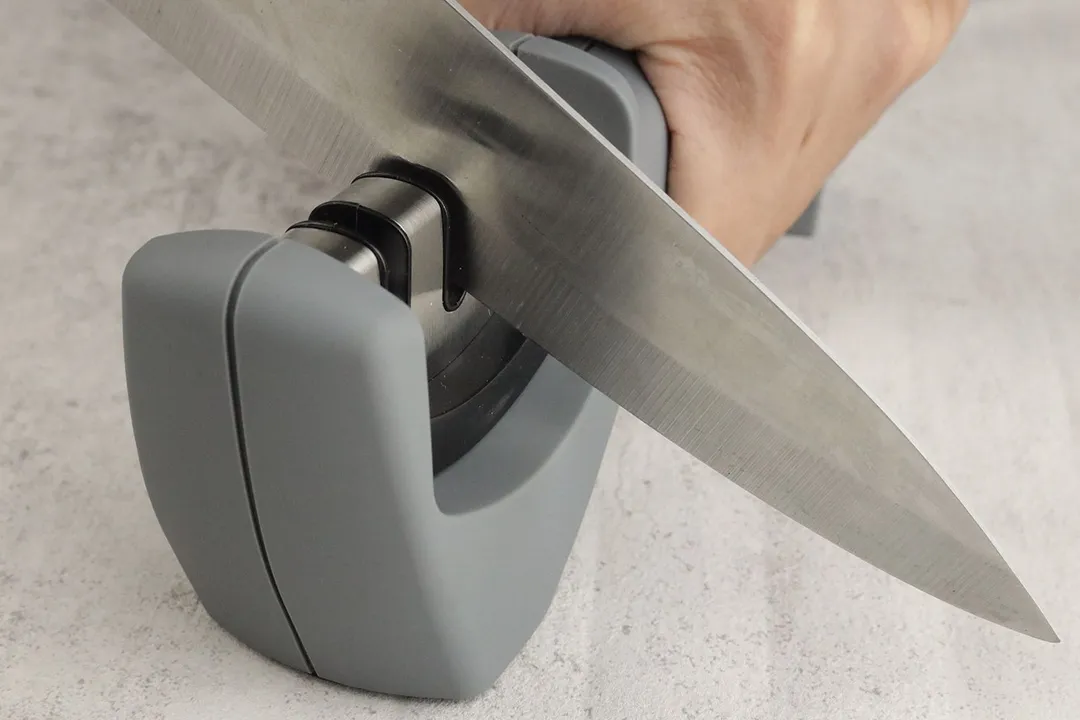
Stability on a Clean Surface

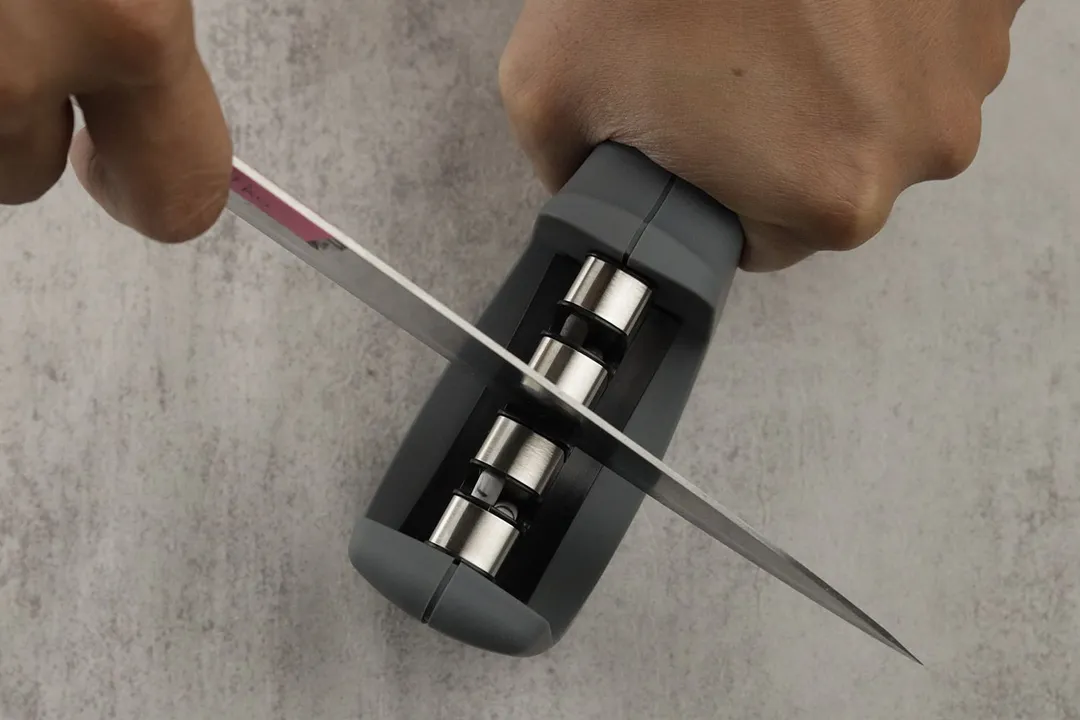
Stability on a Wet and Dirty Surface
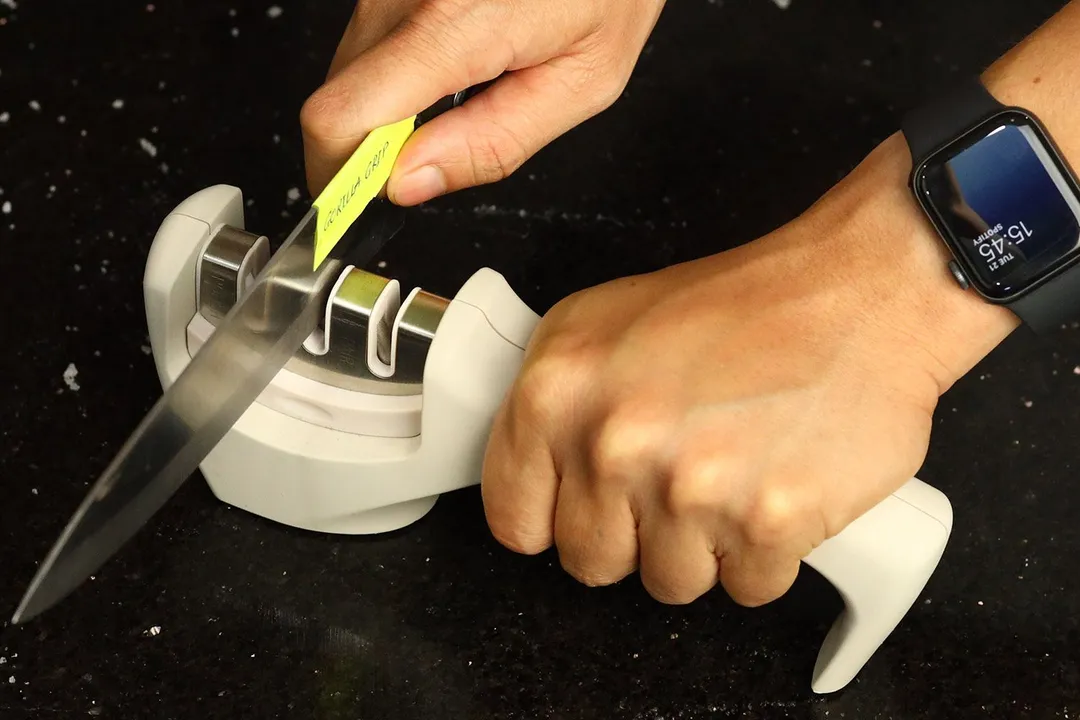

Behind the Comparison
Anh Ngo is a writer with 9 years experience at different media outlets, covering from public news and events to product testing and analysis. At HealthyKitchen101, she works across different departments, communicating closely with its network of writers, editors, and health, tech, and search engine experts to provide a meaningful and pleasant reading experience for visitors.
Lap is Head of the Research, Testing, and Review Team (RTR Team) at HealthyKitchen101.com, where he directs and supervises the testing of kitchen gadgets and appliances.
Nguyen Ntk is a graphic designer, photographer, and videographer whose philosophy centers around respecting and celebrating the beauty of reality. Through his lenses, Nguyen strives to capture the true essence of objects and events, showcasing and highlighting authentic features without distortion or exaggeration.




